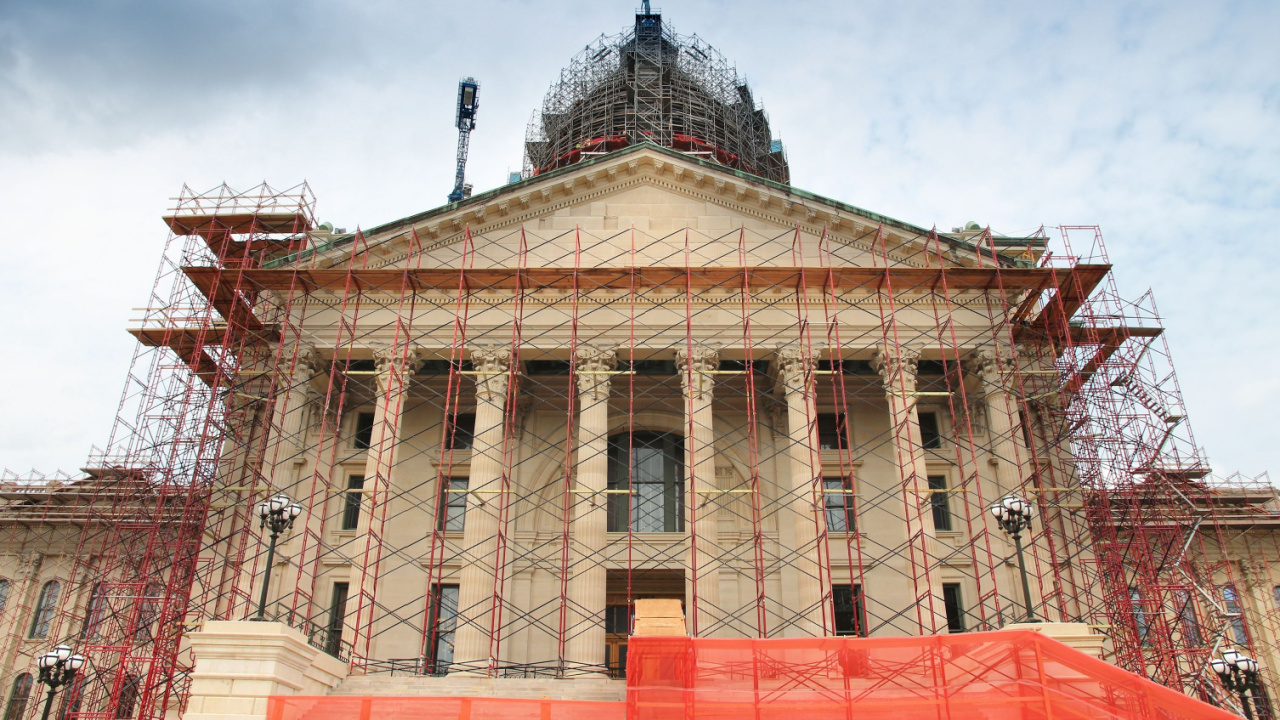
Final Build America, Buy America Act Guidance Released
In October 2023, the Office of Management and Budget released guidance for the Build America, Buy America Act, which was enacted in November 2021 as part of the Infrastructure Investment and Jobs Act. This guidance:
- Finalizes stricter rules for U.S. content requirements
- Further expands the definition of infrastructure and BABA’s coverage
- Provides calculation methodologies for manufactured products
Companies supplying federally funded infrastructure projects in 2024 and beyond should conduct a supply-chain review to ensure their products meet the new domestic content requirements. While waivers exist, few are expected to be granted.
The IIJA expanded the existing U.S. content requirement rules in the BABA provisions that attach to all infrastructure projects going forward. At the same time, the IIJA expanded the definition of infrastructure to capture more federally funded projects, including the electric vehicle charging infrastructure. The new guidance continues the trend of increasing U.S. content requirements on an expanded list of infrastructure projects.
INFRASTRUCTURE DEFINED
Following the IIJA, the new guidance provides that infrastructure includes, at a minimum, the structures, facilities and equipment for roads, highways and bridges; public transportation; dams, ports, harbors and other maritime facilities; intercity passenger and freight railroads; freight and intermodal facilities; airports; water systems, including drinking water and wastewater systems; electrical transmission facilities and systems; utilities; broadband infrastructure; and buildings and real property; and structures, facilities and equipment that generate, transport and distribute energy including EV charging. The guidance expanded the definitions of these projects to increase applicability and goes further to state that federal agencies should interpret the term "infrastructure" broadly and consider the above list "as illustrative and not exhaustive."
Importantly, BABA rules do not attach to funding of for-profit entities. The new guidance, however, provides more flexibility to the funding agency to attach BABA requirements to funds for the for-profit entities. Agencies may consider whether the project will serve a public function including if the project is privately operated on behalf of the public, as opposed to a project that is privately owned and not open to the public.
IRON AND STEEL, CONSTRUCTION MATERIALS, MANUFACTURED PRODUCTS
Historically, the Buy America Act, enacted in 1933, primarily related to iron and steel, along with manufactured products that were predominantly iron and steel. BABA expanded the application of BAA rules to cover iron and steel, manufactured products and construction materials.
For iron and steel, BABA requires both iron and steel to be "produced in the United States" and that "all manufacturing processes, from the initial melting stage through the application of coatings" must occur in the U.S. This refers to all iron and steel in a project and is not limited to only certain types of steel. Moreover, these iron and steel requirements attach to manufactured products that are predominantly iron and steel—products that are over 50% iron and steel.
For manufactured products, the product must be: (1) manufactured in the U.S., and (2) its components must be 55% minimum U.S. origin. In calculating the origin content, the recent guidance provided specific explanations of how to calculate and attribute various cost components, such as transportation and packaging costs associated with the subcomponents of a manufactured item. Importantly, this calculation methodology focuses on components, and the cost of labor cannot be included in the cost of components. The end product/manufactured product for the calculation will be determined by the information in the contract or funding agreement with the relevant agency.
Construction materials also must be "produced in the United States" and "all manufacturing processes must occur in the United States." "All manufacturing processes" has not been defined, but OMB guidance states that at minimum the final two stages of manufacturing must take place within the U.S.
Moreover, the guidance reiterates and expands the list of items that are construction material: (1) non-ferrous metals, (2) plastic and polymer-based products, (3) glass, (4) fiber optic cable (including drop cable); (5) optical fiber; (6) lumber; (7) engineered wood; and (8) drywall. Certain construction materials have been specifically excluded as Section 709179(c) items, and therefore exempt from BABA, including concrete, cement, stone, sand or gravel, along with binding agents and additives.
WAIVERS
The IIJA provides that a federal agency may waive the application of the domestic content preference for three different reasons—public interest, non-availability in the U.S. and unreasonable cost. Waivers under one of these three provisions must have a detailed written explanation for the proposed determination to issue the waiver and this explanation must be published with a comment period of 15 days before they are granted. Despite these avenues for a waiver, it is expected that federal agencies will limit the amount of waivers granted.
Related stories








